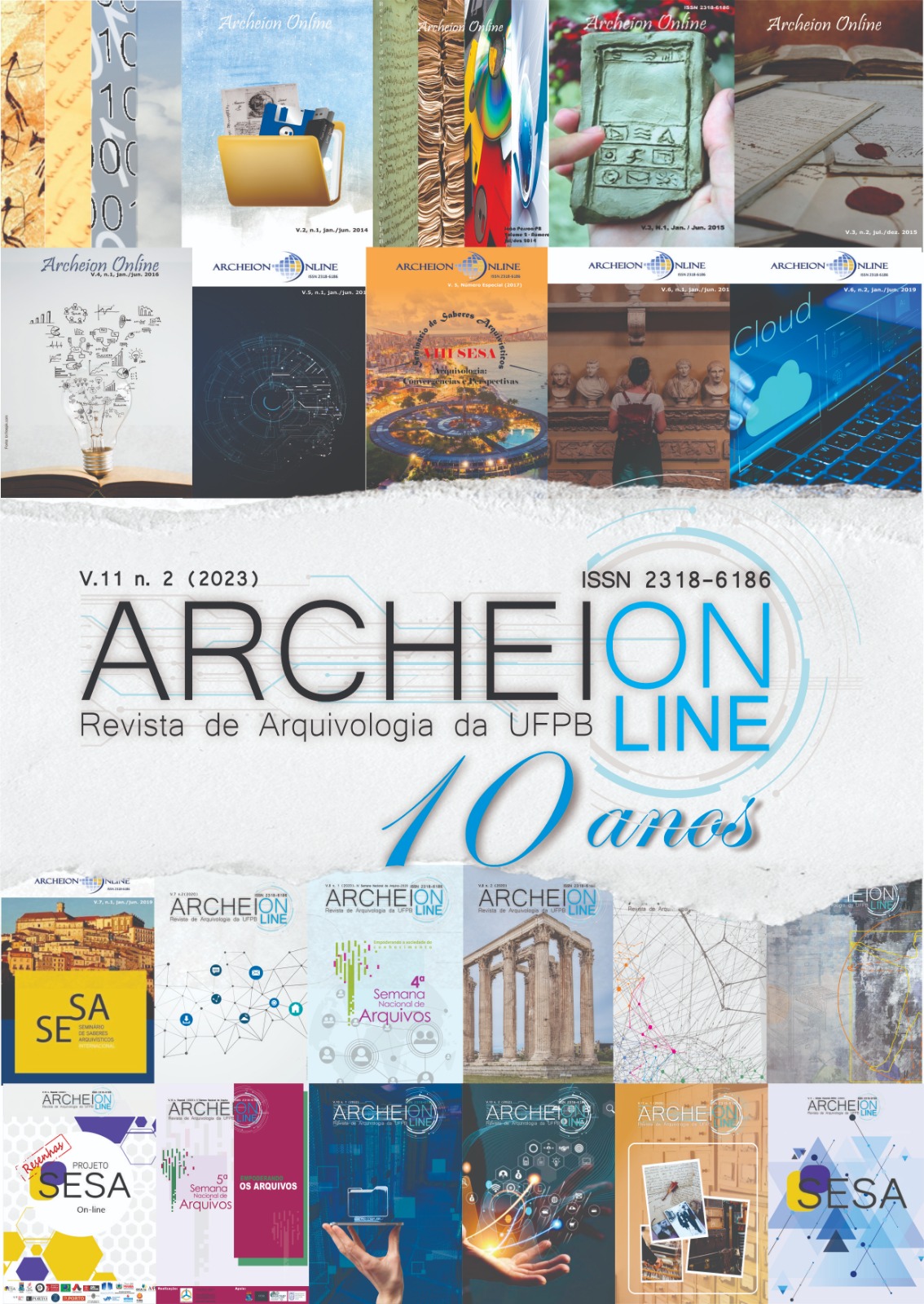FAIR DIGITAL OBJECTS: addressing the complexity in the research data management process
abordando a complexidade no processo de gestão de dados de pesquisa
DOI:
https://doi.org/10.22478/ufpb.2318-6186.2023v11n2.68962Keywords:
Gestão de dados científicos, Objetos digitais, Objetos digitais FAIR, Tecnologias da informação e comunicaçãoAbstract
This investigation aims to disclose and discuss the main characteristics of FAIR Digital Objects. These artifacts emerge as a contemporary solution for optimizing research data management. The implementation of FAIR Digital Objects is currently in development by the scientific community, yet it already presents itself as a viable alternative to address emerging demands associated with the management of large volumes of data characterized by heterogeneity and various granularities. Additionally, attention is drawn to the demands that new artificial intelligence tools may impose on the context of research data management. The undertaken research is categorized as exploratory, bibliographic, and qualitative in nature. Information regarding FAIR Digital Objects was acquired through searches on the CAPES Periodicals Portal, Google Scholar, and visits to canonical websites related to the investigated theme. Based on the conducted analyses, it is concluded that FAIR Digital Objects represent a feasible possibility to address the complexity in research data management. The underlying concepts and technologies of FAIR Digital Objects can contribute to the development of further research in the field of Information Science.
Downloads
References
ANDERS, I. et al. FAIR Digital Object Technical Overview Version PEN 2.0, 2023. Zenodo. Disponível em: https://doi.org/10.5281/zenodo.7824714. Acesso em: 11 set. 2023.
BORGMAN, C. L; BRAND, A. The Future of Data in Research Publishing: From nice to have to need to have? Harvard Data Science Review, n. Special Issue 5, 21 dez. 2023. Disponível em: https://hdsr.mitpress.mit.edu/pub/imfn7i7f. Acesso em: 28 dez. 2023.
CALLAGHAN, S. et al. Making data a first class scientific output: data citation and publication by NERC’s Environmental Data Centres. International Journal of Digital Curation, v. 7, n. 1, p. 107–113, 10 mar. 2012. Disponível em: https://doi.org/10.2218/ijdc.v7i1.218. Acesso em: 28 dez. 2023.
DE SMEDT, K.; KOUREAS, D.; WITTENBURG, P. FAIR Digital Objects for Science: From Data Pieces to Actionable Knowledge Units. Publications, v. 8, n. 2, 2020. Disponível em: https://doi.org/10.3390/publications8020021. Acesso em: 11 set. 2023.
DIAS, G. A. et al. Publicando dados de pesquisa: contextualizando as principais etapas e elementos envolvidos no processo. Ciência da Informação, [S. l.], v. 49, n. 3, p. 115-127, nov. 2020. DOI: 10.18225/ci.inf.v49i3.5501. Disponível em: https://revista.ibict.br/ciinf/article/view/5501. Acesso em: 28 dez. 2023.
FAIR DIGITAL OBJECTS FORUM. A1 What is a FAIR Digital Object (FDO)? 2023. Disponível em: https://fairdo.org/library/. Acesso em: 27 dez. 2023.
FAIR DIGITAL OBJECTS FORUM. FAIR Digital Objects. 2023a Disponível em: https://fairdo.org/1316-2/ . Acesso em: 27 dez. 2023.
FAIR DIGITAL OBJECTS FORUM. FDO Specifications. 2023b Disponível em: https://fairdo.org/specifications/. Acesso em: 27 dez. 2023.
GOFAIR. FAIR principles. 2023. Disponível em: https://www.go-fair.org/fair-principles/. Acesso em: 06 set. 2023.
KAHN, R.; ELY, D. K. System for uniquely and persistently identifying, managing, and tracking digital objects. United States. US6135646A, 24 out. 2000. Disponível em: https://patentimages.storage.googleapis.com/b1/1d/24/98a0a11303dd05/US6135646.pdf. Acesso em: 11 set. 2023.
SANTOS, L. O. B. S. FAIR Digital Object Framework Documentation Working Draft. 2022. Disponível em: https://fairdigitalobjectframework.org/. Acesso em: 29 dez. 2023.
SEIXAS, R. Carimbador Maluco. In: RAUL SEIXAS. Faixa 7. [S.l.]: Estúdio Eldorado Ltda., 1983. 1 disco de vinil.
SCHWARDMANN, U. Digital Objects – FAIR Digital Objects: Which Services Are Required? Data Science Journal, v.19, n.1, p. 1-6, 2020. Disponível em: https://datascience.codata.org/articles/10.5334/dsj-2020-015. Acesso em: 11 set. 2023.
WILKINSON, M. D. et al. The FAIR Guiding Principles for scientific data management and stewardship. Scientific Data. v. 3, n.1, p. 1-9, mar. 2016. Disponível em: http://doi.org/10.1038/sdata.2016.18 . Acesso em: 11 set. 2023.
WITTENBURG, P.; STRAWN, G. Revolutions Take Time. Information, v.12, n.11, 2021. Disponível em: https://doi.org/10.3390/info12110472. Acesso em: 28 dez. 2023.
Downloads
Published
How to Cite
Issue
Section
License
Os Autores mantêm os direitos autorais e concedem à Archeion Online, o direito de publicação simultaneamente disponibilizada de acordo com uma Licença Creative Commons, permitindo o compartilhamento sem fins lucrativos de sua obra pelo seu uso/citação de modo referenciado (com reconhecimento da autoria e publicação nesta revista).

















